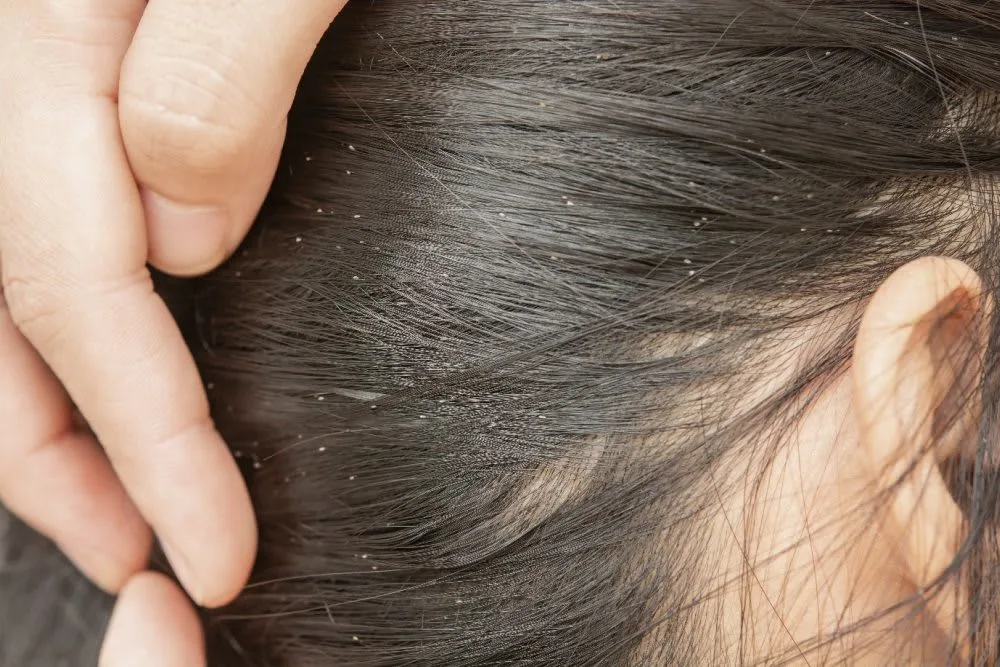Introduction Dandruff, commonly known as scalp trash, is a prevalent condition that affects millions of individuals worldwide. It is characterized by the shedding of dead skin cells from the scalp, resulting in the presence of visible white or yellowish flakes. Although dandruff is typically harmless and not contagious, it can cause discomfort, self-consciousness, and embarrassment. Understanding the causes, symptoms, and effective management strategies for scalp trash is essential for those seeking relief from this bothersome condition. In this article, we will delve deeper into the subject of dandruff, exploring its origins, potential triggers, and various treatment options available.
Understanding Dandruff Dandruff can be caused by several factors, including an overgrowth of a naturally occurring fungus called Malassezia, which feeds on the oils produced by our scalp. This overgrowth leads to an accelerated rate of skin cell turnover, resulting in the visible flakes commonly associated with dandruff. Other factors that can contribute to the development of scalp trash include dry skin, sensitivity to hair care products, certain skin conditions like eczema or psoriasis, and hormonal imbalances.
The most obvious and common symptom of dandruff is the appearance of white or yellowish flakes on the scalp, hair, and clothing. These flakes can be more pronounced when scratching the scalp or if the hair hasn’t been washed for a few days. Additionally, individuals with dandruff may experience scalp itchiness, redness, and a feeling of tightness or dryness.
Managing Scalp Trash While dandruff cannot be completely cured, it can be effectively managed through various treatment options. The choice of treatment depends on the severity of the condition and individual preferences. Here are some commonly recommended approaches:
- Anti-Dandruff Shampoos: Over-the-counter shampoos containing active ingredients like zinc pyrithione, ketoconazole, selenium sulfide, or coal tar can help control dandruff. These ingredients work by targeting the underlying causes of dandruff, such as the overgrowth of fungus or excessive skin cell turnover. Regular use of these shampoos can significantly reduce scalp trash symptoms. To treat the fungal infection,
- Moisturizing and Gentle Hair Care: Keeping the scalp and hair adequately moisturized can help alleviate dandruff symptoms. Avoid using harsh hair care products that can further dry out the scalp. Opt for gentle shampoos and conditioners formulated for sensitive scalps. Regularly applying a moisturizing oil, such as coconut oil or olive oil, to the scalp can also provide relief.
- Natural Remedies: Some natural remedies may offer relief for mild dandruff cases. These include rinsing the scalp with diluted apple cider vinegar, applying aloe vera gel, or using tea tree oil, which has antifungal properties. However, it’s important to note that natural remedies may not work for everyone, and it’s best to consult a healthcare professional before trying them.
- Stress Management and Healthy Lifestyle: Stress can worsen dandruff symptoms. Engaging in stress-reducing activities, such as exercise, meditation, or hobbies, can help manage dandruff. Additionally, maintaining a balanced diet, getting enough sleep, and practicing good hygiene habits contribute to overall scalp health.
Prevention plays a vital role in managing dandruff. Some preventive measures include washing the hair regularly to remove excess oil and dead skin cells, avoiding excessive use of styling products, and limiting exposure to extreme temperatures. It’s also crucial to maintain overall scalp hygiene, including regularly washing combs, brushes, and pillowcases.
Scalp trash, or dandruff, may be a persistent annoyance for many individuals, but it is a manageable condition. Understanding the causes, symptoms, and treatment options for dandruff can help individuals find effective relief and regain confidence in their scalp health. By incorporating appropriate anti-dandruff shampoos, moisturizing techniques, and stress management strategies, it is possible to control dandruff symptoms and prevent their recurrence. Remember, if dandruff persists despite self-care efforts or becomes severe, it is advisable to seek professional advice from a dermatologist or healthcare provider for a tailored treatment plan. This is also the case is you run into other fungal infections on the eyelid or other bodyparts.



